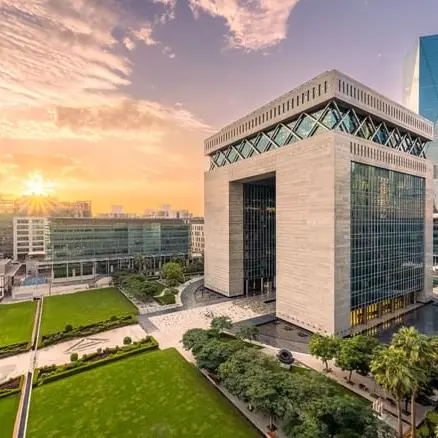The Islamic financial services industry has had a good run over the past years, with global assets reaching an estimated USD 1.8 trillion in 2013 or a staggering 38.5% growth over the USD 1.3 trillion recorded in 2011, according to Ernst & Young's latest industry report.
Despite its year-on-year success, Islamic finance continues to offer an ample room for growth. Broadly speaking, the sector needs a framework that recognizes the mutually dependent nature of credit and fiduciary risks in order for it to remain on track.
In a bid to address this concern, Guan Jian Zhong, chairman of the board and president of Beijing-based Dagong Global Credit Rating, introduced their newly launched Universal Credit Rating Group (UCRG), which has an ambitious goal of challenging established international ratings agencies, whose failings, according to Guan's speech, have contributed to the global financial crisis.
More importantly, UCRG - a venture among China's Dagong, Russia's RusRating and the United States' Egan-Jones Ratings - would claim to have the potential to further boost the global sukuk market by encouraging global Islamic institutions to join and have more say in international rating sector through participation in the global rating governance process. If made, this topic would be highly significant as the current shortage of top-rated Shariah-compliant bonds hurts the liquidity management of Islamic banks.
At the moment, the international market still lacks a steady supply of top-rated sukuk, which are currently available only from a small number of sources including the Islamic Development Bank and the International Islamic Liquidity Management Corp. But the investment appeal of sukuk has shown a rapid ascend in recent years.
Growth is expected to pick up as a pool of Islamic funds in the Gulf and the Southeast Asian regions continue to expand. According to a Thomson Reuters report, sukuk issuance is expected to reach around USD 130 billion in 2014 and USD 237 billion in 2018.
CREDIT RATING REFORM
The UCRG's entry into the international credit rating foray touches some significant concerns as described in a January 2014 report by economists Andreas Fuchs and Kai Gehring.
According to them, ideally, competition and concerns over reputation should incentivize agencies to publish accurate and unbiased ratings. However, several concerns about biased sovereign ratings revolve around the role of the credit rating agency's "home country". Fuchs and Gehring define this as a "deviation of the rating level in favor of the home country or countries aligned with [the credit rating agency] from what would be justified by the sovereign's economic and political fundamentals".
As a result, home countries often get a rating that is one point higher than what would be justified by the normal approach for assessing other sovereigns.
The UCRG hopes to reform the current global credit rating regime, create an initial framework for a new system by 2020, and have the ability to provide credit risk information on international economies by 2025.
IIRA PARTNERSHIP
As a step towards strengthening the Islamic finance sector, the Islamic International Rating Agency (IIRA) signed an exclusive memorandum of understanding with China's Dagong Global Credit Rating for the joint management of ratings of Islamic financial institutions, with international and national scale assessments being carried out by both agencies and fiduciary assessments -including Shariah governance- being conducted by IIRA.
Dagong and IIRA also plan to conduct joint economic research and enhance rating coverage in Islamic countries. The partnership also seeks to encourage greater Chinese investments in Islamic countries.
China's approach toward deepening economic relationship with the Islamic world will add fuel to its already strong relations with Arab countries. At the moment, China has diversified interest in the Islamic world from energy investments (e.g. in Saudi Arabia, Iran, Kuwait, Oman and Qatar), and transport infrastructure (e.g. railroad projects linking China with Iran via Kazakhstan, Uzbekistan and Tukmenistan), to intensive economic and political ties with Indonesia and Malaysia in Southeast Asia.
Perhaps the Dagong-IIRA memorandum may be a seen as a strategic instrument to increase China's influence in the Middle East. What is interesting to note is that, through this agreement, China would stress a far-sighted policy towards the global sukuk market, would increase its assessment capacity of Shariah-compliant fixed income products and would create an access for the issuance of renminbi-based bonds by Islamic companies - thereby widening the range of currencies in which highly rated sukuk are denominated.
Fabio Vanorio is Counselor at the Italian Ministry of Foreign Affairs. His scholarship in Islamic finance dates back to 2007, since then he has carried out academic research in Shariah-compliant finance. Recently, he began an in-depth analysis concerning the existing links between the expansion and evolution of Islamic finance and the asset allocation of Islamic sovereign wealth funds.
Disclaimer: Any views or opinions presented in this document are solely those of the author and do not necessarily represent those of his organization.
Zawya 2014




















